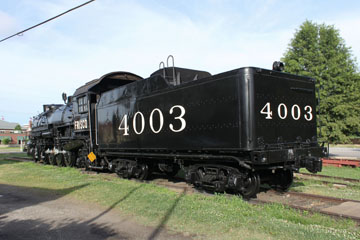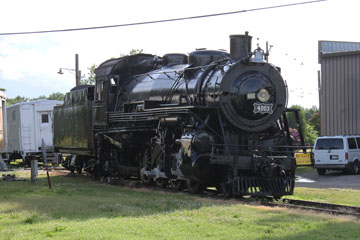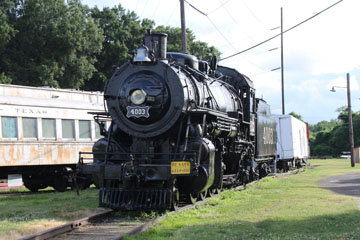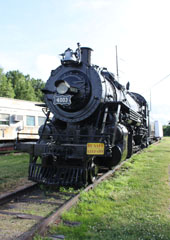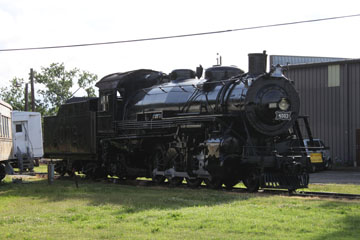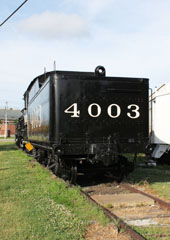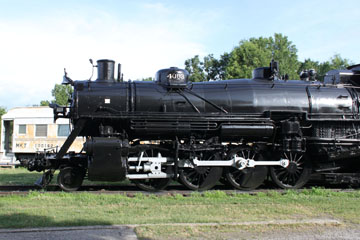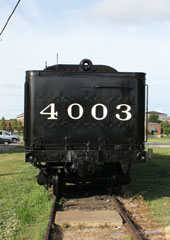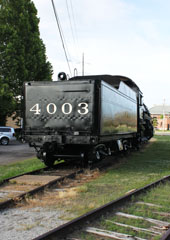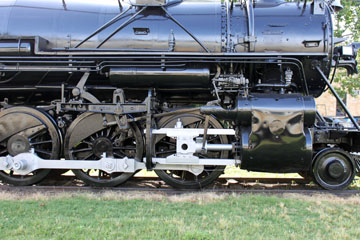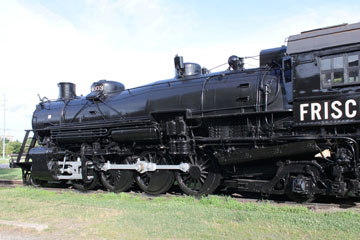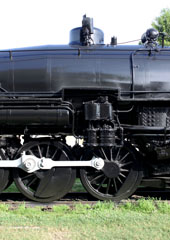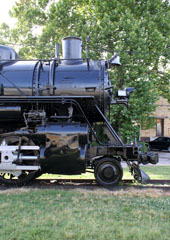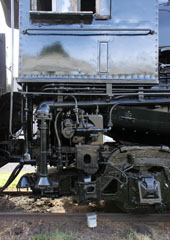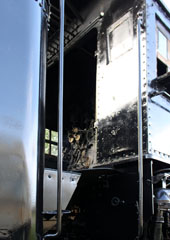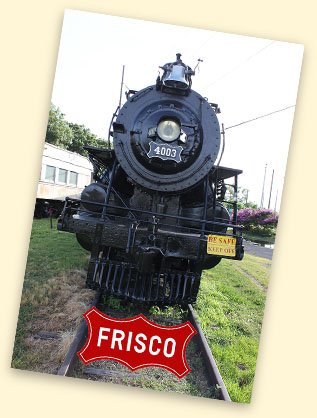

#4003 is one of thirty-eight standard United States Railroad Administration light Mikado type (2-8-2) locomotives built in 1919 for the Pennsylvania Railroad. It was one of three of the class built by Alco at its Schenectady, NY, Locomotive Works in late summer that year at a cost of $53,619 each. The remaining thirty-five were built by Lima.
The Pennsy, for unknown reasons, rejected thirty-three of the order, and the USRA reassigned twenty-three (#4000-#4007 & #4017-#4031) to the St. Louis–San Francisco Railway, which also received ten others from the Indiana Harbor Belt Railroad (#4008-#4016 & #4032) making thirty-three in all.


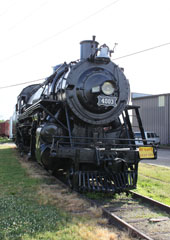
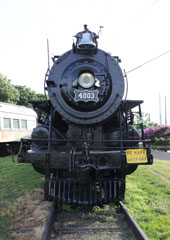
The railroads of the United States were nationalised as part of the World War I war effort in December 1917 to ensure the most efficient operation.
Under the USRA, locomotives were built to one of the twelve standard designs, which included the Light Mikado, and #4003 was one of six hundred and twenty-five built by the USRA. Another six hundred and forty-one were built to the design after the USRA was wound down in March 1920, making it one of the most numerous locomotive designs of all time.
After the Frisco received the Mikados, it modified them with boosters on the trailing trucks and raised cab roofs for more headroom.
#4003 went into
service hauling freight trains between Fort Smith, AR, and Monett, MO.
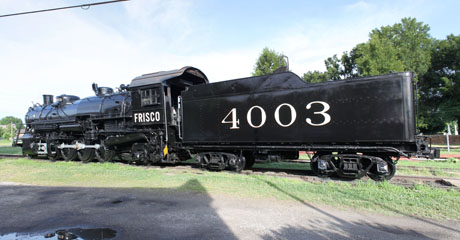
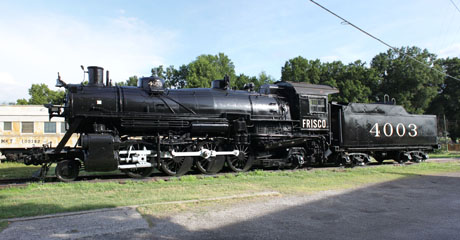
The Frisco began converting to diesel power in the late forties, and #4003 was retired in early 1952. The Frisco kept the locomotive until 1954 when it was donated to the City of Fort Smith and placed on display in Kay Rodgers Park. It remained there for almost fifty years until in 2002, the city transferred ownership to the Fort Smith Trolley Museum with the provision that the museum pay for moving the locomotive. It now sits outside at the museum. While it could probably be restored to operating condition, the museum has no track on which to run it and the restoration cost would be considerable.
#4003 was added to the National Register of Historic Places in 2004.
The engine weighs 290,800 lbs, 221,500 lbs on its 63” drivers with Walschaert valve gear and
26” x 30” cylinders. The engine wheelbase is 36’ 1” and the driver wheelbase 16’ 9½”. It has a 66.7
sq ft grate and 280 sq ft firebox, including a 24" long 50 sq ft combustion chamber and 27 sq ft in arch tubes. Total heating surface is 4,665 sq ft, including 882 sq ft superheating. Operating at a boiler pressure of 200 psi, it delivered 45,724 lbs tractive effort.
The tender weighs 188,300 lbs light and has a 10,000 gallon water and 16 ton coal capacity.


